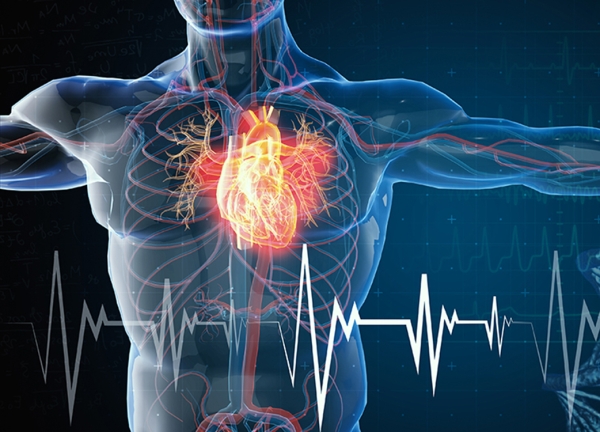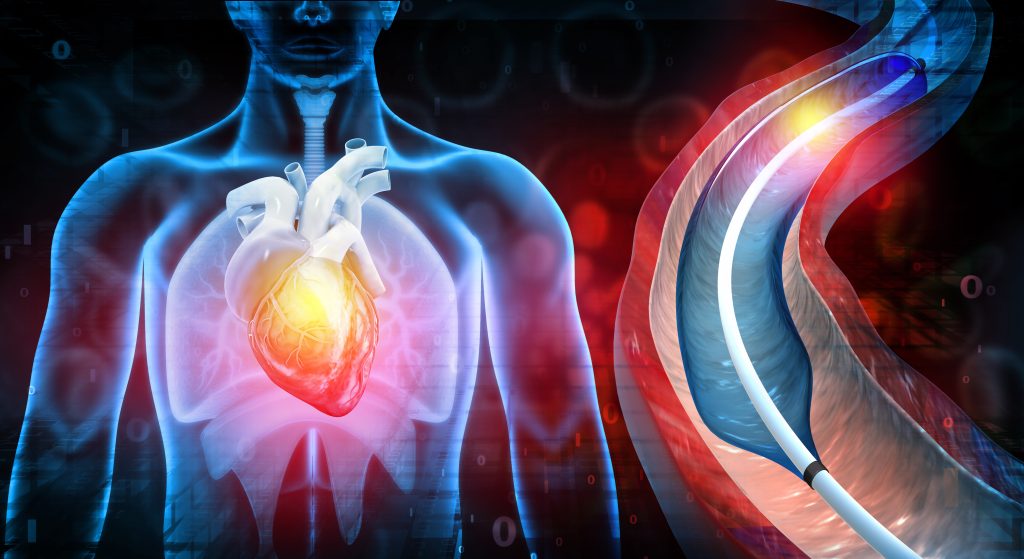What Cardiology reveals about managing high blood pressure
What Cardiology reveals about managing high blood pressure
Blog Article
Understanding the Relevance of Cardiology in Modern Healthcare Services
Cardiology plays a critical function in modern medical care, especially as heart disease remains to be the leading reason of mortality worldwide. Advances in diagnostics and therapy have actually transformed person treatment, allowing earlier interventions and enhanced results. Moreover, the change towards preventive cardiology encourages individuals to manage their health proactively. As innovation continues to develop, the integration of cutting-edge solutions may further redefine cardiology's effect on public health and wellness, motivating a more detailed examination of arising fads and their effects.
The Prevalence of Heart Condition and Its Effect On Public Health And Wellness
Heart condition continues to be the leading reason of death internationally, its influence expands much past private patients to affect public wellness systems and economies. The high prevalence of heart illness places a significant pressure on health care sources, necessitating increased funding for treatment, avoidance, and rehab programs. Public health campaigns must deal with threat factors such as excessive weight, smoking, and sedentary way of lives, which contribute greatly to the climbing incidence of heart conditions.Moreover, the economic problem related to heart illness is enormous, including not only direct clinical expenses but additionally indirect expenditures associated to shed productivity and premature death. Communities face challenges in taking care of these expenses, often resulting in differences in healthcare accessibility and results. As the population ages and lifestyle-related dangers proceed to escalate, the urgency for effective cardiology interventions ends up being vital. Subsequently, resolving heart disease is not just an issue of specific health yet likewise an essential public health priority.
Developments in Cardiac Diagnostics and Imaging Techniques
Recent innovations in cardiac diagnostics and imaging techniques have reinvented the area of cardiology, boosting the capacity to monitor and find heart illness. Strategies such as cardiac MRI, CT angiography, and echocardiography have come to be increasingly sophisticated, giving comprehensive images of cardiac frameworks and features. These methods allow for the early identification of problems like coronary artery condition, heart failing, and valvular disorders.Moreover, developments in non-invasive diagnostics, such as wearable innovation and remote monitoring devices, have empowered clients and doctor. These devices facilitate real-time tracking of heart rhythms and various other necessary indications, leading to timely treatments. Additionally, synthetic intelligence is being integrated into imaging evaluation, boosting accuracy and effectiveness in diagnosis.
Developments in Therapy Options for Heart Issues
Current advancements in cardiology have actually brought about considerable advancements in therapy options for heart conditions. These include innovative medical techniques that enhance procedural outcomes and emerging medications that offer brand-new methods for therapy. As the area develops, these technologies play a crucial role in enhancing individual care and end results.
Advanced Surgical Techniques
Technologies in medical techniques have actually changed the landscape of cardiology, providing new expect patients with heart problems. Minimally intrusive procedures, such as catheter-based interventions, have considerably decreased healing times and medical facility stays. Methods like robotic-assisted surgical procedure boost accuracy, enabling specialists to navigate intricate physiological structures with greater precision. Furthermore, innovations in imaging innovation assist in real-time visualization during procedures, enhancing results. Transcatheter aortic valve replacement (TAVR) exhibits an advancement in treating aortic stenosis, making it possible for shutoff replacement without open-heart surgical procedure. Additionally, hybrid strategies that combine catheter-based and surgical methods offer tailored services for numerous heart concerns. These sophisticated surgical techniques not only improve person security yet likewise expand therapy options, underscoring the critical function of development in modern cardiology techniques.
Arising Medications and Treatments
As the landscape of cardiology proceeds to develop, emerging treatments and medications play a pivotal duty in enhancing therapy options for heart problems. Technologies such as novel anticoagulants and advanced lipid-lowering representatives have actually transformed the administration of cardio diseases, considerably decreasing client morbidity and mortality. In addition, the growth of genetics therapies and regenerative medicine provides appealing avenues for treating conditions formerly considered irreparable. Medical tests are continuously exposing the effectiveness of these therapies, pressing the boundaries of traditional treatments. The combination of electronic wellness modern technologies helps with personalized medication, permitting for tailored treatment strategies based on genetic and way of living elements. Collectively, these improvements highlight the vibrant nature of cardiology, enhancing person outcomes and redefining standards of treatment in modern-day medical care.
The Duty of Preventive Cardiology in Individual Care
Preventive cardiology plays a necessary duty in individual care by concentrating on the recognition of risk aspects that add to cardiovascular disease. Via lifestyle modification methods and early detection methods, doctor can successfully minimize the occurrence of cardiovascular events - Cardiology care. This proactive approach not just boosts patient outcomes yet likewise promotes lasting wellness
Threat Variable Identification
While cardio conditions continue to be a leading reason of morbidity and death worldwide, efficient danger factor identification acts as a cornerstone of preventative cardiology. Recognizing danger aspects such as high blood pressure, household, hyperlipidemia, and diabetes mellitus background is important for early treatment. Healthcare specialists make use of different evaluating techniques to examine these variables, permitting tailored safety nets. Additionally, understanding a client's way of life choices, such as smoking cigarettes and physical lack of exercise, further educates threat evaluations. This thorough examination enables medical professionals to establish customized treatment strategies focused on mitigating dangers. By prioritizing threat variable identification, medical care systems can improve client end results and decrease the general concern of cardio diseases, ultimately adding to boosted public health and wellness techniques and source allowance.
Way Of Living Adjustment Methods
A multitude of research studies highlights the vital role of lifestyle modification strategies in lowering heart disease risk. These approaches include nutritional modifications, raised physical activity, smoking cigarettes cessation, and weight management. By adopting a heart-healthy diet abundant in fruits, vegetables, whole grains, and lean healthy proteins, people can decrease cholesterol degrees and blood pressure. Routine exercise strengthens the heart and enhances general cardiovascular health. Additionally, giving up smoking cigarettes substantially minimizes the danger of heart condition and boosts recovery prices for those with current conditions. Weight monitoring additionally adds to cardiovascular wellness by minimizing various other danger elements such as diabetes and hypertension. Implementing these way of living alters not only promotes private health but also acts as a keystone of precautionary cardiology in person treatment.
Early Discovery Strategies
Way of living alterations substantially Read More Here contribute to reducing cardiovascular illness threats, however they are most efficient when coupled with very early discovery techniques. Preventive cardiology stresses the significance of determining possible heart problems prior to they escalate into significant conditions. Methods such as high blood pressure tracking, cholesterol screening, and progressed imaging technologies like echocardiograms play vital functions in reviewing cardiovascular health and wellness. Biomarkers and hereditary screening also enhance the precision of very early discovery, permitting tailored preventive approaches. Normal heart risk examinations encourage doctor to interfere proactively, possibly avoiding cardiovascular disease and strokes (Dr Garcia). By integrating these very early detection approaches into regular treatment, patients can gain from timely lifestyle treatments and targeted treatments, eventually improving and enhancing end results quality of life
Integrating Modern Technology Into Cardiology Practices
As advancements in innovation remain to improve numerous fields, the combination of innovative devices and systems right into cardiology practices has ended up being essential for enhancing client treatment and end results. Telemedicine platforms allow cardiologists to keep an eye on individuals from another location, improving accessibility to care while minimizing the concern on health care facilities. Wearable tools, such as smartwatches, make it possible for continuous heart rate surveillance, signaling both doctors and clients to possible concerns in real-time. Furthermore, expert system (AI) is being used to assess vast amounts of heart data, aiding in very early medical diagnosis and tailored treatment plans. Advanced imaging strategies, including 3D echocardiography, enhance visualization of heart structures, leading to much more accurate interventions. Electronic health records (EHRs) streamline individual info administration, guaranteeing that cardiologists have immediate accessibility to essential information. Together, these technical improvements are changing cardiology, promoting proactive management and enhanced health and wellness outcomes for clients with cardiovascular problems.
The Importance of Person Education and Engagement
Individual education and learning and interaction play a crucial role in the monitoring of cardiovascular wellness. By gearing up clients with understanding regarding their conditions, treatment choices, and way of life adjustments, doctor equip people to take an energetic duty in their care. This aggressive approach can result in boosted adherence to recommended medicines, nutritional changes, and workout routines, ultimately lowering the threat of complications.Engagement also fosters a solid patient-provider connection, motivating open interaction and trust. When clients really feel notified and involved, they are most likely to voice concerns and ask concerns, which can bring about much better clinical end results. Additionally, educational sources, such as workshops or electronic systems, can enhance understanding and advertise self-management methods. Overall, focusing on individual education and interaction is crucial for boosting cardio health and wellness, enhancing high quality of life, and reducing healthcare expenses related to cardio conditions.
Future Trends in Cardiology and Their Possible Impact

Often Asked Inquiries
What Way Of Living Adjustments Can Decrease Heart Problem Danger?
The present concern addresses lifestyle changes that can considerably decrease cardiovascular disease threat. Dr Garcia. Embracing a balanced diet, engaging in regular physical task, preserving a healthy weight, handling anxiety, and staying clear of tobacco can significantly boost cardiovascular health
Just How Can I Acknowledge Very Early Signs of Heart Problems?
Recognizing very early signs of heart issues involves monitoring signs such as chest pain, shortness of breath, fatigue, and uneven heart beat. Timely understanding of these indicators can prompt required clinical analysis and intervention for much better outcomes.
What Are the Distinctions Between Cardiologists and Heart Surgeons?
The differences between cardiologists and cardiac surgeons hinge on their roles; cardiologists largely manage and detect heart problems through non-invasive methods, while heart surgeons execute surgeries to deal with architectural heart concerns. Each plays an important, distinct duty.

Just how Frequently Should I Get My Heart Health And Wellness Checked?
The frequency of heart checkup differs based on individual danger variables. Typically, adults should go through assessments each to two years, while those with status quo might require more constant evaluations as recommended by healthcare specialists.
What Function Does Genes Play in Heart Problem Risk?
Genetics greatly influences heart problem danger, with familial patterns indicating acquired problems. Specific genes can predispose people official source to high blood pressure, cholesterol issues, and other cardio problems, highlighting the significance of genetic screening in evaluating heart health. Heart disease remains the leading reason of death globally, its influence extends much beyond specific clients to influence public health and wellness systems and economic climates. Public wellness initiatives have to address risk variables such as excessive weight, smoking cigarettes, and less active way of livings, which add substantially to the climbing occurrence of heart conditions.Moreover, the financial burden linked with heart illness is enormous, including not only direct clinical prices but also indirect costs connected to lost productivity and early mortality. Preventative cardiology plays a vital duty in person care by concentrating on the recognition of threat factors that add to heart illness. Man-made intelligence (AI) and machine learning are enhancing diagnostics and client surveillance, making it possible for early discovery of heart illness. The differences between cardiologists and cardiac doctors exist in their duties; cardiologists primarily diagnose and take care of heart conditions with non-invasive techniques, while cardiac doctors do surgical treatments to correct structural heart problems.
Report this page